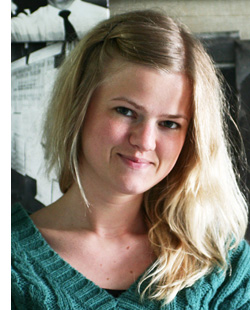
One of the great advantages of having a Ph.D. is that it gives you the opportunity to work abroad. Compared to people in other professions, scientists seem able to work in another country fairly easily. When I was pursuing my thesis in my homeland of Russia, I often dreamed about taking a position in another country after I graduated.
This year, my dream came true. I have been in France for two months for a postdoc position in the laser-matter interaction group at the University of Saint-Etienne. I have already adapted to the local culture, regulations and climate. I have become accustomed to my everyday life and absorbed in my work.
Expectations vs. reality
Before I left Russia for France, I felt completely differently. My excitement about getting a job quickly gave way to anxiety—about everything from shifting to a new research topic, meeting and getting along with people, and communicating when I did not know the language. (Although there are people from all over the world in the lab where I work, most of them are fluent in French.)
Happily, my transition went much more smoothly than I had imagined. After I arrived in France, my panic quickly turned into euphoria: My exciting new life had begun. In the laboratory, my advisor and colleagues were all very friendly and welcoming. They showed me where everything was in the lab and clearly explained the objectives that I was expected to meet. I quickly made friends who have helped me to address all the challenges I have encountered as a foreigner. Although I have not been in my new position very long, I have already had an invaluable experience.
Science and scientists in France and Russia
Overall, I think that people from the scientific community are quite similar to one another, despite their differences in citizenship and nationalities. Thus, it has not been all that difficult for me to integrate into a new research group in another country.
At the same time, science in France is different from that in Russia. At Moscow State University, where I did my Ph.D., most of the work that was being done was fundamental in nature, and it moved at a rather slow pace. In France, however, I notice that researchers direct maximum effort into real applications—and that requires fast, dynamic work. I have also observed a big difference from the financial side. Academia gets more funding in France than in Russia. To be honest, this was also an important factor that I considered when I was choosing a position.
In France, my laboratory equipment is generally in better condition that it was in other universities where I have worked. That has opened up many more possibilities for realizing scientific ideas and achieving my goals.
The benefits of a “real job”
I have often thought of my Ph.D. studies as a stepping stone on the way to earning a degree and choosing a career. By contrast, my postdoc already feels like a “real job.” It is strange and at the same time exciting to realize that, after many years of studying, I am not a student anymore. Having some financial independence is also very satisfying.
Overall impressions
On the whole, I think that science is international. It does not matter much what country you come from or where you choose to do your work. The most important thing is that you choose your position wisely and that you have smart and supportive colleagues. I was very lucky.
Elena Silaeva (elena.silaeva@univ-st-etienne.fr) is a postdoc in the laboratory Hubert Curien at the University of Saint-Etienne, France. She is also a member of the editorial advisory committee for Optics & Photonics News.
